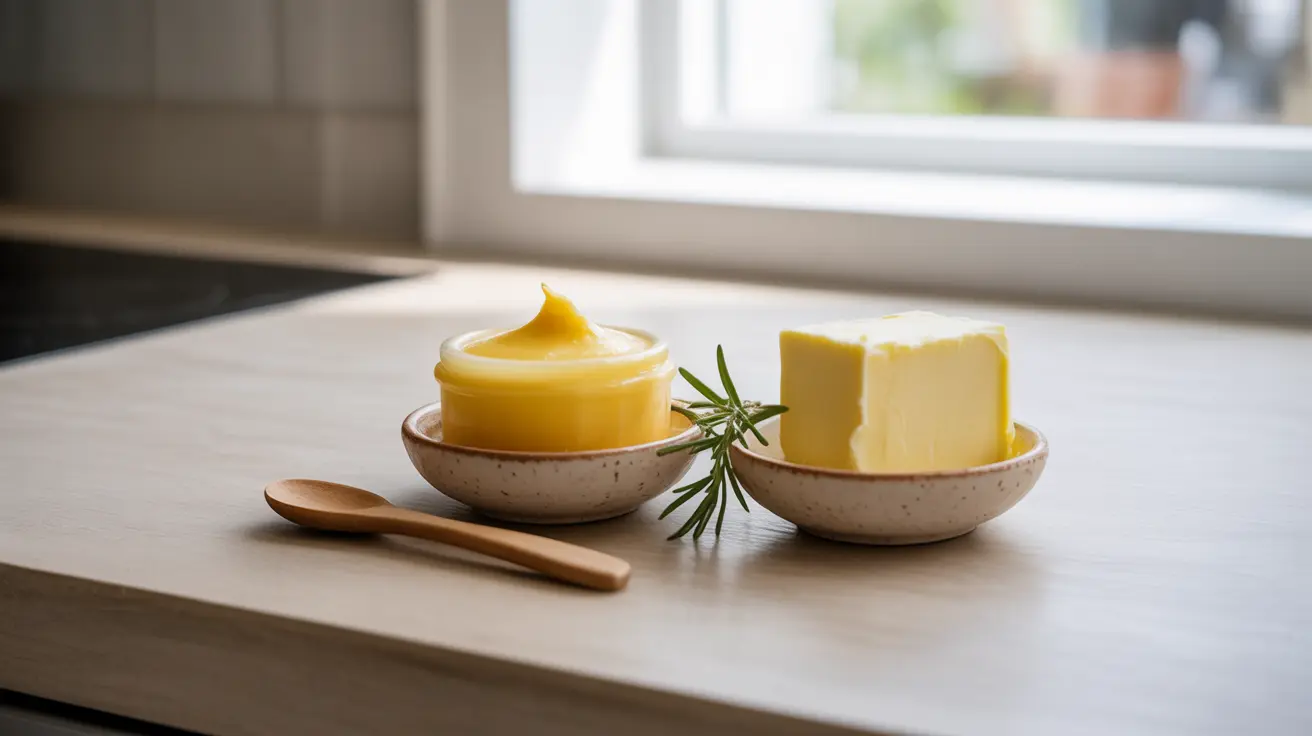As more people explore traditional and alternative cooking fats, the debate between ghee and butter has gained significant attention. While both are derived from dairy, ghee—a form of clarified butter with ancient roots in Indian cuisine—has distinct properties that set it apart from regular butter. Understanding these differences is crucial for making informed dietary choices.
Let's explore the unique characteristics of ghee compared to butter, examining their nutritional profiles, health benefits, and suitability for different dietary needs.
Understanding Ghee vs. Butter: Key Differences
Ghee is created by heating butter until the water evaporates and milk solids separate, leaving behind pure butterfat. This process results in a product with different properties than regular butter:
- Higher smoke point (485°F compared to butter's 350°F)
- Longer shelf life due to removal of moisture
- More concentrated butterfat content
- Virtual elimination of milk solids and proteins
Nutritional Profile Comparison
When comparing ghee and butter nutritionally, there are several important factors to consider:
Caloric and Fat Content
Both ghee and butter contain similar calories (about 120 calories per tablespoon), but ghee has a slightly higher concentration of fat due to the removal of water and milk solids.
Vitamin Content
Ghee contains higher concentrations of fat-soluble vitamins compared to regular butter:
- Vitamin A
- Vitamin E
- Vitamin K2
- Vitamin D
Fatty Acid Profile
Both contain beneficial fatty acids, including:
- Conjugated linoleic acid (CLA)
- Butyric acid
- Medium-chain triglycerides (MCTs)
Cooking Benefits of Ghee
Ghee offers several advantages in cooking applications:
- Higher smoke point makes it ideal for high-temperature cooking
- More stable chemical structure when heated
- Rich, nutty flavor that enhances food taste
- Longer shelf life without refrigeration
Health Considerations and Special Diets
Understanding who might benefit most from choosing ghee over butter is important:
Lactose Sensitivity
The removal of milk solids makes ghee virtually lactose-free, making it potentially suitable for those with lactose intolerance.
Heart Health
While both contain saturated fats, ghee's unique fatty acid profile may offer different effects on cardiovascular health compared to regular butter. However, moderation is still key.
Frequently Asked Questions
What are the nutritional differences between ghee and butter?
Ghee has a higher concentration of fat-soluble vitamins and beneficial compounds due to the removal of water and milk solids. While both contain similar calories, ghee offers a more concentrated source of nutrients.
Is ghee a healthier alternative to butter for people with lactose intolerance?
Yes, ghee can be a better option for those with lactose intolerance because the milk solids containing lactose are removed during the clarification process. However, individuals with severe dairy allergies should still exercise caution.
What are the health benefits of using ghee in cooking compared to regular butter?
Ghee's higher smoke point makes it more stable for high-temperature cooking, potentially producing fewer harmful compounds. It also provides concentrated amounts of fat-soluble vitamins and beneficial fatty acids.
How does ghee impact heart health compared to other types of butter?
While ghee contains saturated fat like butter, its unique fatty acid composition, including medium-chain triglycerides and conjugated linoleic acid, may affect heart health differently. Research is ongoing, but moderation remains important.
Is it safe to consume ghee if I have a dairy allergy or sensitivity?
While ghee contains minimal milk proteins compared to butter, those with severe dairy allergies should consult their healthcare provider before consuming ghee, as trace amounts of milk proteins may remain.
When choosing between ghee and butter, consider your dietary needs, cooking methods, and health goals. While ghee offers certain advantages, both can be part of a healthy diet when used in moderation.




